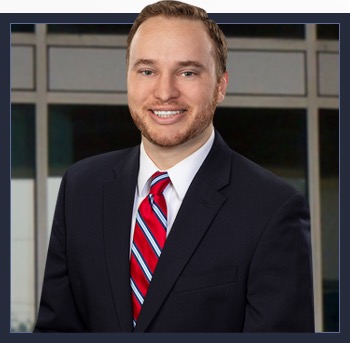Clearwater Criminal Case Lawyer
Most people know that the process of a criminal case begins with an arrest. But what happens next can be confusing and intimidating. If you’ve been arrested in Clearwater, St. Petersburg, New Port Richey, Tampa or anywhere else in the Tampa Bay area, reach out to the criminal defense team at King Law Group to help you through the process today.
The Arrest
Arrests generally happen after the police have been called on a suspect who is committing an alleged crime. Alternatively, arrests can be initiated from bench warrants, which means a judge finds there is probable cause to arrest and detain you for a crime.
During your arrest, you will be read your Miranda Rights. These include the right to remain silent, the right to an attorney, and more. The police must read you your rights so that you are fully informed about what you can do next. The police will often attempt to leverage you into discussing the crime without a lawyer and admit your guilt. It is important to remember that you do not have to discuss the criminal investigation with the police officers. Sometimes individuals who are under investigation want to be cooperative with law enforcement or simply believe they have done nothing wrong and thus will freely speak with police and end up giving a full confession. Other times, the police make it sound as though it is in the person’s best interest to answer their questions, but that too could result in giving law enforcement exactly what they need to arrest that person. Conversations with law enforcement can be complicated and risky, which is why you should speak with an experienced criminal defense attorney at King Law Group to have that conversation for you.
The Court Process
The most common phases of the Florida Criminal Justice system are:
- First appearance – You are entitled to have a judge determine whether you should be afforded bond in your first appearance. The judge can either decide to hold you during the duration of the prosecution of your case or allow you to go free while your charges are pending. Typically, a judge will set a bond amount that acts as collateral should you attempt to flee.
- Arraignment – During the arraignment, the prosecutor will discuss the charges against you. You will now have a chance to enter a plea. There is no benefit to pleading guilty at this point. You will always have a chance to change your plea later.
- Pretrial court dates and pretrial motions – This phase takes place after your formal arraignment. This is when the primary negotiations take place between the defense attorney and the prosecutor. The majority of criminal cases are resolved in this phase with a plea agreement. If an agreement is not made, the case would proceed to motions and then trial. Some of the common motions that may take place are motions to suppress evidence or dismiss the criminal charges.
- Trial – If no plea agreement is reached and the case is not dismissed, the case would proceed to trial. Cases that go all the way to trial require a jury to render a verdict. If the verdict comes back not guilty, the criminal defendant is acquitted and free to leave. If the jury comes back with a guilty verdict, the case will move on to sentencing.
- Sentencing – The sentencing phase is when the judge decides what sentence to impose on someone who has been found guilty. This can be done either immediately after a guilty verdict or set off for another hearing where both the defense and prosecution may present their arguments for a particular sentence.
Talk to a Clearwater, FL Criminal Defense Lawyer
Accused of a crime? Call a Clearwater criminal defense attorney at King Law Group today and we can begin preparing your defense immediately.



